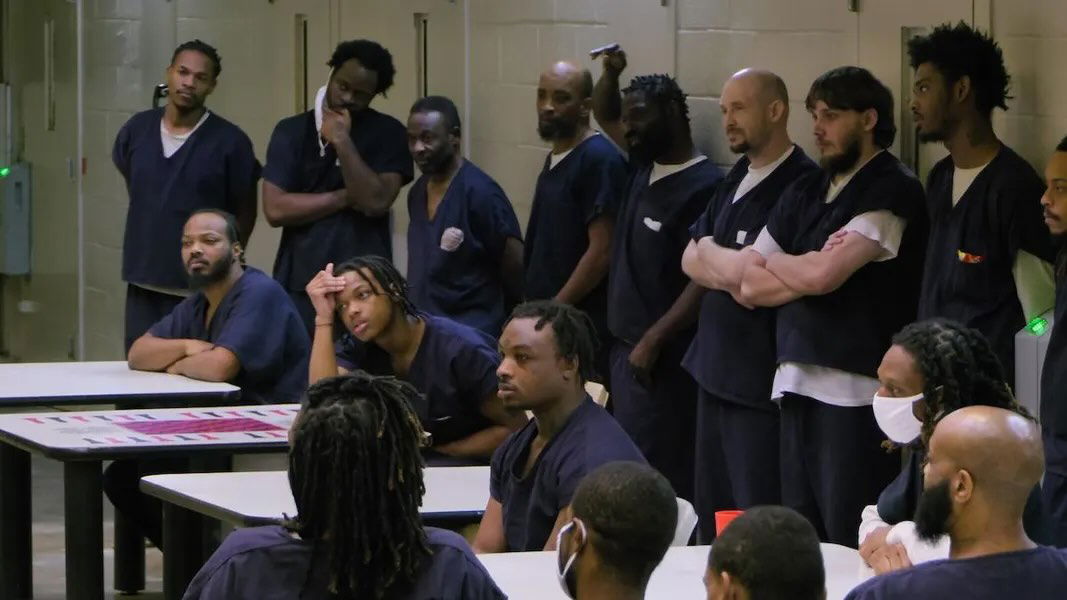In recent months, justice reform has become a prominent topic in both politics and pop culture. Advocates working on behalf of individuals wrongfully convicted and sentenced to lengthy prison terms, including the notable recent entry of Kim Kardashian in such efforts, have helped bring widespread public attention to cases of injustice and the broader issue of prison reform in the United States.
While celebrities can leverage their influence for justice reform, one might ask: could popular cinema have a similar impact, perhaps even serving as a catalyst for positive change in the prison system?
The effectiveness of films in influencing public perception and policy remains an open question in psychological research. However, a recent study by Stanford University researchers has explored this very topic, focusing on empathy for incarcerated individuals.
The study sampled over 749 participants in the U.S. and found that those who watched a narrative film about incarceration showed a greater ability to empathize with, and understand, formerly incarcerated men. This empathy translated into increased support for criminal justice reform, regardless of participants’ political views, compared to those who watched unrelated control films. The findings suggest that immersive, nuanced storytelling can meaningfully influence public perceptions of stigmatized groups.
Cinema’s Role in Justice Reform
“We recruited a nationally representative sample of the US with regards to race, gender, subjective socioeconomic status, and political ideology via a panel recruitment service,” said Marianne Reddan, an Assistant Professor with the Department of Psychiatry and Behavioral Sciences at Albert Einstein College of Medicine and the study’s lead author, in an email to The Debrief.
Jennifer Eberhardt, a social psychologist and professor in the Department of Psychology at Stanford University and also one of the study’s co-authors, said that participants who watched the 2019 film Just Mercy, which portrays the efforts of a civil rights defense attorney to free a wrongly accused death row prisoner, increased their “empathic connection with incarcerated individuals and their support for criminal justice reform.”
Just Mercy is based on a bestselling book by Bryan Stevenson that tells the true story of the Equal Justice Initiative and its fight against injustice. According to the research team behind the recent study, its adaptation into a feature film and resulting impact on study participants illustrates how narrative films can help to significantly shape public discourse.
The study also explored whether participants’ political ideologies influenced the film’s effects. According to Reddan, the initial responses participants provided before watching the film seemed to align with expected positions associated with their political identity, although she added that “no matter what ideology they were, they all increased support to the same degree” after viewing the film.
Tina Kubrak, a senior researcher with the Institute of Psychology at the Russian Academy of Sciences, Moscow who was not directly involved with the study, cited what psychologists call the “Transportation Theory,” telling The Debrief in an email that “the degree of immersion of a person in a narrative correlates with the effectiveness of its influence on a person’s beliefs.”
Sharing his thoughts on the power of storytelling in film and its potential in helping to advance reform efforts like those addressed in the recent Stanford study, director Julien Christian Lutz, a filmmaker better known as Director X, emphasized that a strong story is key to fostering empathy.


“A good story told badly is still a good story. A bad story told well is still bad. A story that tugs at the heartstrings is the necessary tool,” said Lutz, who has worked with notable figures such as Jay Z, Beyoncé, and Drake in the past.
Lutz also highlighted the balance filmmakers must strike between storytelling and messaging, warning against forcing messaging that isn’t organic to the story.
Among the study’s key findings is the suggestion that storytelling can shift public opinion on complex issues, and Lutz agrees that filmmakers play a crucial role in shaping social change through their narratives.
“For centuries, theater has been a place where artists voiced their opinions on the world,” Lutz told The Debrief. “This has always been the role of the theater. The combination of entertainment and social perspective goes down easier than passing laws.”
Impact of Film and Stigmatization of Black Males and Incarceration
The portrayal of Black men in films, particularly regarding incarceration, has long remained present as a mainstream narrative, dating back to the Blaxploitation era of the 1970s. Fueled by the momentum of the civil rights movement, the Black Power movement, and the rise of the Black Panthers, the genre provided a platform for Black filmmakers to showcase their culture, although it also helped to reinforce negative stereotypes about Black masculinity and criminality. This narrative continues to shape public perceptions today.
Joshua Rovner, a political scientist at The Sentencing Project, said in an email to The Debrief that data on racial disparities in youth incarceration reveal that Black youths are almost five times more likely to be incarcerated than their white peers.
Rovner, who advocates for effective and humane responses to crime that minimize imprisonment and criminalization of youth and adults by promoting racial, ethnic, economic, and gender justice, says such issues underscore the importance of diverse and accurate representations in film to help combat harmful stigmas.
Lutz echoed Royner’s sentiments, explaining that films that resonate with young men often center around themes of power and loyalty, which can influence how they view themselves and their social roles.
“I feel that for all young men movies with messages of physical power, respect, and loyalty resonate with them, be them mafia movies, war movies, or gangster/jail movies. I feel when young men can see themselves in those characters, be it such things as race, class, social group, cultural background that’s when a film can have influence,” Lutz told The Debrief.
“The jail movies I remember are the underground ones, the type I watched as a teenage boy,” Lutz said. “Usually, it’s a story about a person who shouldn’t be in that world coming up and taking over in some way. Which in itself is a reflection of male masculinity modeling.
“Even if you’re not tough, you can be tough and take over,” Lutz said, summarizing the primary narrative of such films, calling it a “dangerous message to send.”
Ethical Impacts of Reality TV and Incarceration
Beyond film, television also plays a role in shaping perceptions of jail culture. The controversial Netflix series Unlocked: A Jail Experiment, which focuses on justice reform within jail culture, raised ethical questions about the portrayal of incarcerated individuals and the nature of reality television.
The series takes viewers into Arkansas’s Pulaski County Detention Center, where a sheriff implements a radical social experiment to grant men who are incarcerated more agency for six weeks in a program advertised as “no locks” and “no officers.”


“We thought, ‘What can we do to create some ownership for those detainees in that unit?’ How do we make the facility safer, and what can we do to still hold them accountable but empower them at the same time?” said Sheriff Eric Higgins of the experiment. Ultimately, the program, while controversial, does raise many questions about the ethical aspects of jail culture and the treatment of inmates, as well as the ethics of filming incarcerated people.
Internationally, many countries use film to explore incarceration and justice reform. The United Kingdom, for example, has created prison education programs using film to foster rehabilitation and public awareness. Similarly, in the Philippines and South Africa, films are used to spark discussions around human rights and justice reform.
Many countries outside of North America use film to capture the stories of incarceration and or just reform. In the United Kingdom, films and documentaries like The Last Days of the Prisoner and BBC’s Prison: First and Last 24 Hours all bring insights into what life is like behind bars and the challenges and culture within the justice and legal systems.
Prison education programs have also been instituted in the UK that have leveraged film as a tool not only to advance rehabilitation and reintegration for former inmates, but also to give the public a deeper understanding of jail culture.
In the Philippines, public screenings of films are used to help generate awareness and create more significant discussions around human rights and the justice system. In narrative films such as Life Above All and The Last Face, South Africa also highlights the need for a reformed criminal justice system. Like the Philippines, South Africa also takes pride in engaging filmmakers to connect with local communities through screenings and more extensive discussions while promoting their country’s talent and bringing awareness at the same time.
Storytelling has remained a cornerstone of human communication for thousands of years, and today, social media and film offer powerful platforms for influencing how we view ourselves and others.
“Most people understand there needs to be a balance or you lose the audience,” Lutz told The Debrief, emphasizing his view that a filmmaker’s responsibility is to strike a balance between honesty and persuasion, ensuring that their narratives remain relatable and impactful.
“There’s a fine line between being honest about how you feel and trying to convince someone to fall in line,” Lutz said.
“A good rule of thumb is to represent the other side as if it was your side,” he added.
Chrissy Newton is a PR professional and founder of VOCAB Communications. She currently appears on The Discovery Channel and Max and hosts the Rebelliously Curious podcast, which can be found on The Debrief’s YouTube Channel on all audio podcast streaming platforms. Follow her on X: @ChrissyNewton and at chrissynewton.com.

